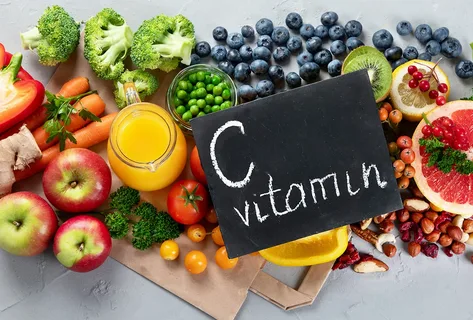Vitamin C, also known as ascorbic acid, is a crucial nutrient that plays many vital roles in our body. It’s well-known for its immune-boosting properties and its ability to support skin health and wound healing. Since our bodies don’t produce Vitamin C naturally, it’s essential to ensure an adequate intake through our diet and, if necessary, through supplements. This guide will explore various ways to increase your Vitamin C intake effectively.
Understanding Vitamin C
What is Vitamin C and why is it important?
Vitamin C is a water-soluble vitamin that acts as an antioxidant in the body. It supports the immune system, helps in collagen production, aids in wound healing, and enhances the absorption of iron from plant-based foods.
What are the daily recommended intake levels of Vitamin C?
The recommended daily intake of Vitamin C varies by age and gender:
- Adults: 75 mg for women, 90 mg for men
- Pregnant women: 85 mg
- Breastfeeding women: 120 mg
Sources of Vitamin C
What are the best food sources of Vitamin C?
Fruits and vegetables are excellent sources of Vitamin C. Some of the richest sources include citrus fruits (like oranges and grapefruits), strawberries, kiwi, bell peppers (especially red and green), broccoli, and tomatoes.
Can you get enough Vitamin C from supplements alone?
While supplements can help, it’s generally recommended to obtain Vitamin C primarily from food sources. Whole foods provide not only Vitamin C but also other essential nutrients and fiber.
Increasing Vitamin C Intake
How can you increase your Vitamin C intake through diet?
- Eat Vitamin C-rich fruits daily: Incorporate a variety of fruits such as oranges, strawberries, and pineapple into your meals or snacks.
- Include vegetables high in Vitamin C: Add bell peppers, broccoli, Brussels sprouts, and leafy greens like kale to your salads or stir-fries.
Are there cooking methods that preserve Vitamin C content?
Yes, cooking methods like steaming or microwaving vegetables can help retain more of their Vitamin C content compared to boiling, which can lead to some loss of nutrients in the cooking water.
Lifestyle Tips for Maximizing Vitamin C Absorption
What can affect the absorption of Vitamin C?
Factors such as smoking, excessive alcohol consumption, and certain medications can decrease the absorption or increase the excretion of Vitamin C in the body. It’s important to consider these factors when planning your intake.
Is it possible to consume too much Vitamin C?
While uncommon through diet alone, excessive intake of Vitamin C through supplements can lead to digestive upset or diarrhea in some individuals. It’s generally recommended to stay within the tolerable upper intake levels (2000 mg/day for adults) unless otherwise advised by a healthcare professional.
FAQs about Vitamin C
Does Vitamin C help prevent colds and flu?
While Vitamin C is often associated with immune support, its role in preventing colds and flu is still debated. It may help reduce the duration or severity of symptoms in some cases.
Can Vitamin C improve skin health?
Yes, Vitamin C is essential for collagen production, which is crucial for skin health. It can help reduce the appearance of wrinkles and improve overall skin texture.
Is there a link between Vitamin C and heart health?
Some studies suggest that Vitamin C may have a protective effect on heart health by improving blood vessel function and reducing oxidative stress.
Should Vitamin C be taken with other vitamins or minerals for better absorption?
Vitamin C enhances the absorption of non-heme iron (iron from plant-based sources) when consumed together. It’s often recommended to pair Vitamin C-rich foods with iron-rich foods for optimal absorption.
Are there groups of people who may need more Vitamin C?
Individuals who smoke, are under high stress, or have certain chronic illnesses may require higher intakes of Vitamin C to support their immune systems and overall health.
Conclusion
Ensuring an adequate intake of Vitamin C is crucial for overall health and well-being. By incorporating Vitamin C-rich foods into your daily diet and considering lifestyle factors that affect absorption, you can effectively boost your Vitamin C levels naturally. For personalized advice on your Vitamin C intake, consult with a healthcare professional who can assess your specific needs and recommend appropriate strategies.
- Nu-Derm Skin System Near Leatherhead, Surrey - June 1, 2025
- What Is The Experience Of Someone Who Identifies As Graysexual? - May 30, 2025
- Sculptra Surrey – Collagen Stimulation Therapy Near Kingston Upon Thames, Surrey - May 30, 2025

